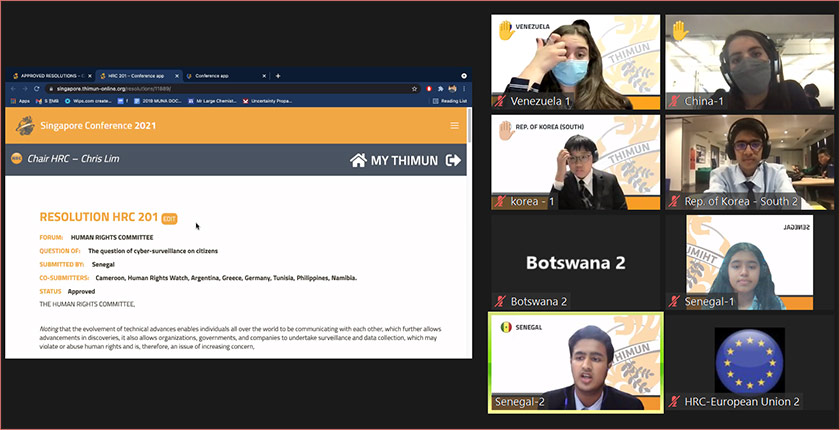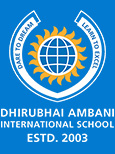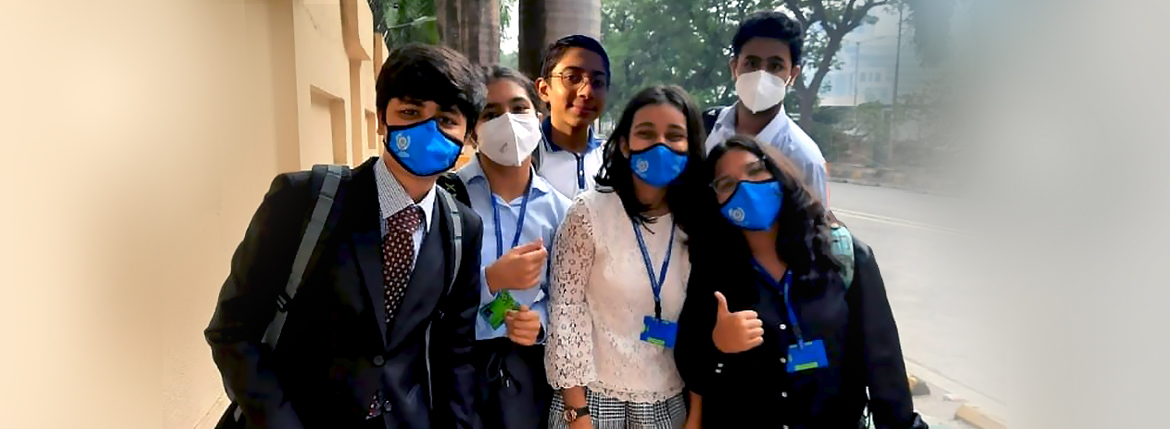THIMUN SINGAPORE - 2021
THIMUN Singapore 2021, was the second THIMUN virtual conference that took place from the 15th to the 19th November. It follows the THIMUN procedure, the same as DAIMUN, and is the second most prestigious THIMUN conference in the world. ICSE students from Standard 9A taking part in this MUN include Aditya Ramanathan, Saachi Gupta, Kiara Maniar, Harshvardhaan Jhaveri, Tanisha Joshi and Shiv Kini.
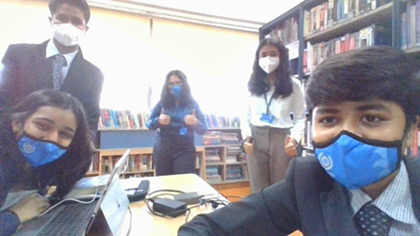
Singapore THIMUN brought delegates across the world together to discuss matters of global importance from addressing climate change on the development of urban to the question of the cancellation of governmental debt and come up with practical solutions for them.
Six delegates representing Dhirubhai Ambani International School were divided into 3 committees; Environment Committee, Human Rights Council and Economic Committee in double delegations (Saachi Gupta and Shiv Kini in EC) (Aditya Ramanathan and Tanisha Joshi in EVC) (Harshvardhaan Jhaveri and Kiara Maniar in HRC).
Over the course of five days, each committee debated two agendas and passed suitable resolutions. All the delegates represented the Republic of Senegal in their respective committees. The sessions were held over a Zoom call, with all communication between delegates regarding chits, resolutions and amendments taking place using the THIMUN webapp.
To ease communication between the co- delegates they were permitted to attend the conference from school which allowed for far better collaboration with each of them.
Day 1- (15th November)
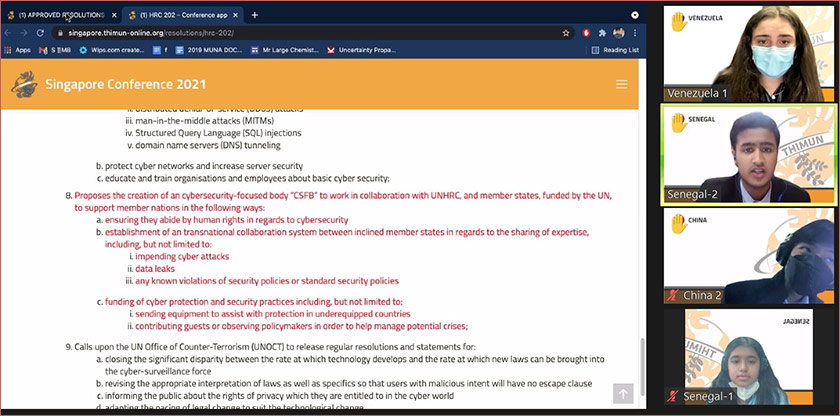
Each committee held its own preparation meeting, during which the delegates were introduced to their student officers and briefed on the upcoming five days, including the code of conduct, dress code requirements, how to write resolutions, the process of lobbying on an online platform, and the web app's functionality.
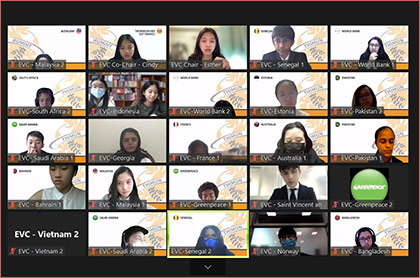
This was followed by the opening ceremony.
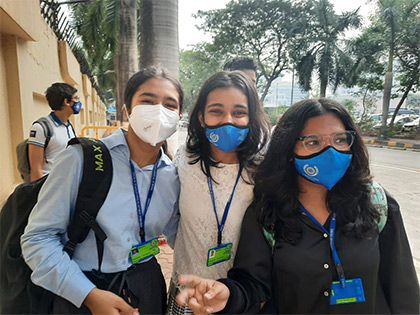
Day 2 - (16th November)
Day 2 began with all delegates giving their policy statements on their respective first agendas. They were then divided into breakout rooms for their respective subtopics where the lobbying process commenced. Delegates got to interact with students from other schools, adding pre-prepared clauses and newly made clauses alike to a document which, after being thoroughly refined, and formed a draft resolution. The draft resolution was later submitted to the Approval Panel. Most of the delegates were able to attain main submitter on their draft resolutions for the first agenda.
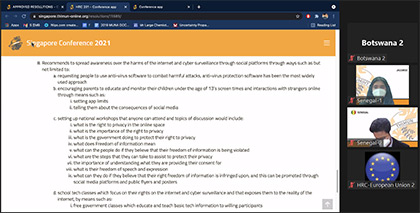
Day 2 ended with all students looking forward to debating upon resolutions the next day.
Day 3 - (17th November)
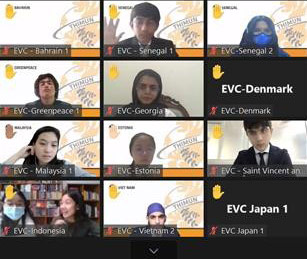
On Day 3, the delegates debated upon the resolutions for the first agenda. The delegates debated over the resolutions that had been prepared the previous day, with critics questioning their feasibility and detailing while supporters delivered heartfelt speeches, pleading delegates to vote in favour. The delegates debated over amendments. Ultimately, all of the resolutions and amendments submitted by DAIS students passed. This day, all the resolutions in all of the committees passed.
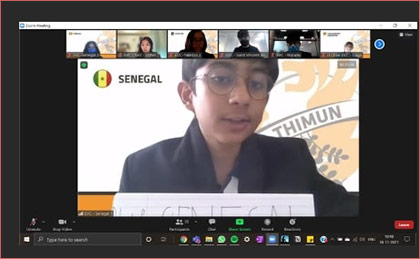
Day 4 - (18th November):
Day 4 of the conference marked the beginning of the discussion of the second agenda in each of the committees. The delegates were requested to move into breakout rooms of their selected subtopics to commence lobbying much like the second day. The process was now repeated with delegates fighting to be crowned main submitter of the newly made draft resolutions, from which the DAIS students managed to emerge victorious - all the delegations from school managed to attain main submitters in their respective committees.
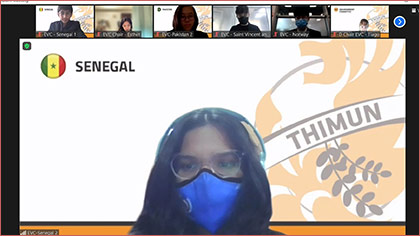
Day 5 - (19th November):
The last day of committee marked the passing of all the resolutions presented by the delegates of Senegal in our committees. Intense debate over both amendments and the resolutions as a whole was entertained, with amendments being thrown out or praised and incorporated into the final resolution. The committees of EVC and HRC passed 3 out of 3 resolutions presented that day, while EC passed 2 out of the 3. The last session ended with the committees voting on the superlative game of “who’s most likely to...”
This was followed by the closing ceremony where the delegates of Senegal were mentioned in EC, EVC and HRC. All in all, the delegates from DAIS greatly benefitted from this conference, and enjoyed the enriching experience.

